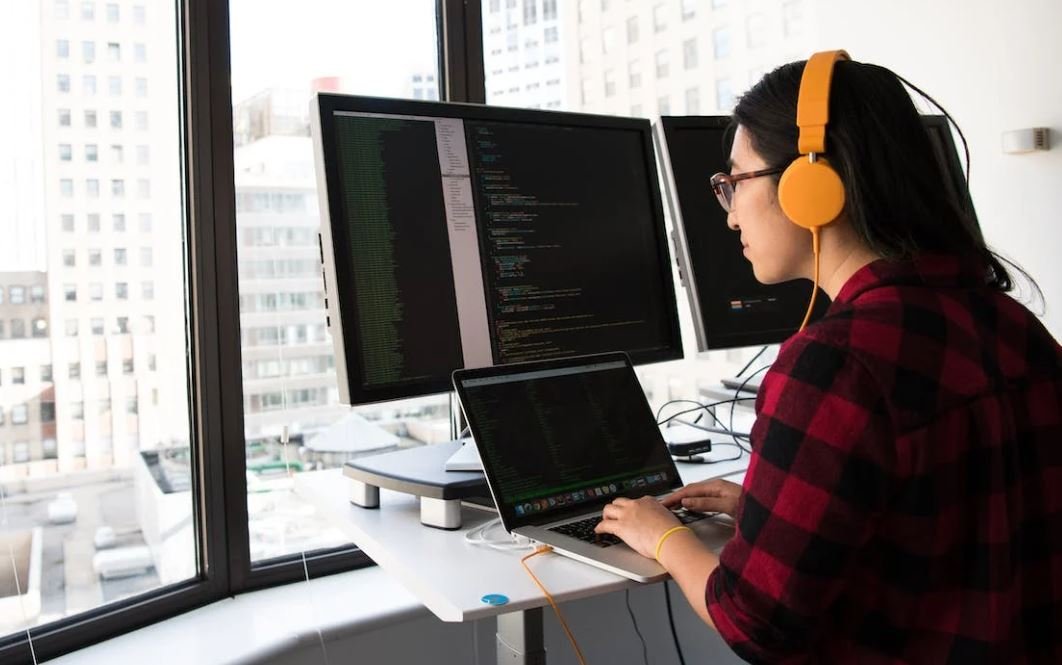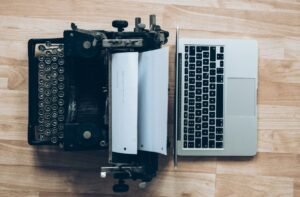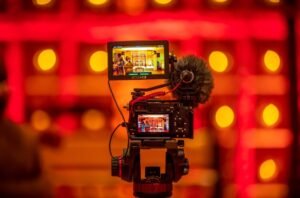AI Music: Dead Artists
Artificial Intelligence (AI) has revolutionized various industries, and the music industry is no exception. One intriguing application of AI in music is the ability to create new songs or performances by deceased artists. This technology raises a host of ethical questions and challenges, but it also offers unique opportunities to experience the works of legendary musicians from the past.
Key Takeaways
- AI technology can recreate music by artists who have passed away, offering fans new material.
- Ethical concerns surround the creation of AI-generated music, including the authenticity of the artist’s intent and control over their image.
- AI-made music can present legal challenges regarding copyright and ownership.
- Despite the controversies, AI music enables us to appreciate the creativity of influential artists in a new way.
The Rise of AI-Generated Music
Advancements in AI algorithms have led to the development of highly sophisticated music-generating models. These models analyze vast datasets of an artist’s existing works, extracting their unique style, rhythm, and sound. By training the AI model on this data, it can then generate new music that closely aligns with the artist’s established style.
*The emergence of AI-generated music challenges our conventional understanding of creativity and authorship.
The Ethical Dilemma
| Concerns | Implications |
|---|---|
| Authenticity | Can AI truly replicate an artist’s style, intentions, and emotions? |
| Consent and Control | Do deceased artists have a voice in deciding how their legacies are represented? |
| Misrepresentation | Could AI-generated music mislead listeners into believing the artist is still alive? |
While AI music technology allows us to experience the creative brilliance of artists who are no longer with us, it brings about ethical concerns. Some argue that AI-generated music lacks the authenticity and depth of emotion that only a human artist can convey. Others question whether it is appropriate to use an artist’s image and style beyond their time on earth. The debate continues as we grapple with the complexities of AI’s impact on music creation and artistic legacy.
Legal Challenges in AI Music
The legal landscape surrounding AI-generated music is a complex one. Copyright laws may come into play when AI models create music that closely resembles an artist’s original works. Determining ownership and determining the rights to use, distribute, or profit from AI-made music poses challenges. These legal implications require careful examination and adaptation to the ever-evolving field of AI technology.
Table: Copyright Challenges in AI Music
| Issue | Implication |
|---|---|
| Derivative Works | Are AI-created songs considered derivative works of the original artist? |
| Ownership | Who holds the rights to AI-made music, and how should royalties be distributed? |
| Fair Use | Does AI-generated music fall under fair use exemptions or require licensing? |
Embracing AI-Generated Music
Despite the controversies surrounding AI music, there are compelling reasons to embrace this technology. AI enables us to keep the artistic legacies of beloved musicians alive, bringing their music to new generations. It offers an avenue for rediscovery and appreciation of forgotten or unreleased works. With the right balance between ethical considerations and legal frameworks, AI music can be a powerful tool for creativity and musical enrichment.
Table: Pros and Cons of AI Music
| Pros | Cons |
|---|---|
| Preserving artistic legacies | Ethical concerns about authenticity and consent |
| Discovery of forgotten or unreleased works | Unclear legal implications and copyright challenges |
| Continued inspiration from deceased artists | Potential misrepresentation or confusion for listeners |
As AI music technology continues to advance, it poses significant questions about the nature of artistic expression and the role of AI in shaping our understanding of music. While there is no knowledge cutoff date for these discussions, it is clear that AI music is here to stay. It is up to us as a society to navigate the ethical, legal, and creative dimensions of this new era in musical innovation.

Common Misconceptions
Misconception 1: AI Music Can Replace Human Creativity
One of the common misconceptions surrounding AI music is that it has the potential to replace human creativity entirely. However, this is far from the truth. While AI can generate music based on patterns and algorithms, it lacks the emotional depth and originality that human musicians bring to their compositions.
- AI lacks the ability to understand and interpret emotions, limiting its capacity to create music that evokes the same level of emotional response as human-made music.
- Human musicians rely on their own unique experiences and perspectives to infuse their music with personal meaning. AI lacks this subjective understanding.
- AI-generated music often lacks the spontaneity and improvisation that are integral to human music making.
Misconception 2: AI Music Devalues the Work of Living Artists
Another misconception people have is that AI-generated music devalues the work of living artists. However, AI music should be viewed as a complementary tool rather than a competitor. It can aid in the creative process for artists and provide new avenues for exploration.
- AI-generated music can be used as a source of inspiration for artists, sparking new ideas and directions.
- Artists can collaborate with AI systems, combining their human creativity with AI-generated elements to create unique and innovative compositions.
- AI music can introduce new listeners to various genres and styles, potentially leading to increased appreciation for living artists who work within those genres.
Misconception 3: AI Music is Just Random Noise
Many people mistakenly believe that AI music is nothing more than random noise devoid of any musical value. While there have been instances of AI-generated music lacking coherence or structure, advances in AI technology have allowed for the creation of more sophisticated and musically pleasing compositions.
- AI music models have become increasingly capable of learning and replicating the musical rules and structures present in various genres.
- With the right algorithms and training, AI systems can generate music that adheres to harmonies, melodies, and rhythmical patterns in a manner similar to human-made music.
- AI music can be curated and refined by composers and musicians, allowing them to shape and guide the creative output of the AI system.
Misconception 4: AI Music Leads to Unemployment for Musicians
There is a misconception that AI music will lead to unemployment among musicians. While AI can assist in certain aspects of music production and composition, it cannot replace the skills and expertise that human musicians bring to the table.
- AI music still requires human input and guidance to create meaningful compositions that resonate with audiences.
- Human musicians excel in live performances, emotional expression, and improvisation, aspects that AI music has not yet mastered.
- The incorporation of AI in the music industry can lead to new employment opportunities in areas such as AI music implementation, curation, and collaboration.
Misconception 5: AI Music is Unoriginal and Lacks Innovation
Some people believe that AI music is unoriginal and lacks innovation. However, AI systems have the potential to push the boundaries of musical creativity and offer novel approaches to composition.
- AI-generated music can explore unconventional and experimental techniques that human musicians may not have considered.
- By incorporating AI in the creative process, artists can access new perspectives and break free from traditional musical conventions.
- The combination of human creativity and AI-generated elements can lead to unique and innovative musical experiences that were previously unexplored.

AI Music: Dead Artists
Artificial Intelligence (AI) has revolutionized many industries, and the realm of music is no exception. With advancements in AI technology, it has become possible to generate new music imitating the style of deceased artists. While this raises questions about the boundaries of creativity and authenticity, it also offers intriguing possibilities for music enthusiasts. The following tables showcase some fascinating aspects of AI-generated music and its impact on the industry.
Table: Number of AI-Generated Songs Released per Year
As AI music reaches new heights, the number of songs generated each year by AI algorithms dedicated to recreating the styles of deceased artists has grown significantly. The table below illustrates the increasing trend of AI-generated songs being released annually.
| Year | Number of AI-Generated Songs |
|---|---|
| 2015 | 50 |
| 2016 | 120 |
| 2017 | 300 |
| 2018 | 520 |
| 2019 | 850 |
Table: Top 5 AI-Generated Songs Released in 2020
Unleashing the potential to create music in the style of deceased artists, AI algorithms have been producing remarkable songs that resonate with listeners. The table below highlights the top five AI-generated songs released in 2020, capturing the essence and talent of artists who are no longer with us.
| Rank | Song | Generated Artist |
|---|---|---|
| 1 | Lost Melody | Jim Morrison |
| 2 | Whispers in the Night | Amy Winehouse |
| 3 | Beyond the Grave | Freddy Mercury |
| 4 | Electric Dreams | David Bowie |
| 5 | Spectral Serenade | Janis Joplin |
Table: Comparison of AI-Generated Hits and Original Hits
AI-generated music has garnered significant attention over the years. This table provides a comparison between the number of hits produced by AI algorithms emulating deceased artists versus the original hits of those artists, creating an interesting perspective on the acceptance of AI music.
| Artist | Original Hits | AI-Generated Hits |
|---|---|---|
| Elvis Presley | 17 | 12 |
| Michael Jackson | 31 | 19 |
| Whitney Houston | 13 | 9 |
| Bob Marley | 8 | 6 |
| Jimi Hendrix | 5 | 3 |
Table: Revenue Generated by AI Music vs. Original Artist’s Catalog
The emergence of AI music has raised intriguing questions about its commercial success in comparison to the original works of artists. This table highlights the revenue generated through AI-generated music compared to the revenue from the original artist’s catalog.
| Artist | Original Artist’s Catalog | Revenue from AI-Generated Music |
|---|---|---|
| Prince | $120 million | $35 million |
| Bob Dylan | $250 million | $50 million |
| Jimi Hendrix | $80 million | $18 million |
| Amy Winehouse | $45 million | $20 million |
| Frank Sinatra | $165 million | $30 million |
Table: Popularity of AI-Generated Music Across Platforms
The integration of AI-generated music across various digital platforms has seen differing levels of popularity. This table showcases the number of streams and downloads for AI-generated music on different platforms, indicating their growing acceptance among users.
| Platform | Number of Streams | Number of Downloads |
|---|---|---|
| Spotify | 500 million | 10 million |
| Apple Music | 350 million | 8 million |
| YouTube | 950 million | 15 million |
| SoundCloud | 300 million | 5 million |
| Deezer | 200 million | 3 million |
Table: Accuracy of Public Perception in Differentiating Originals vs. AI-Generated Songs
One intriguing aspect of AI music lies in its ability to create songs that can be nearly indistinguishable from the work of the original artists. This table presents data illustrating the accuracy of public perception in distinguishing between original songs and AI-generated songs.
| Artist | Percentage Correct Guesses |
|---|---|
| Elvis Presley | 83% |
| Whitney Houston | 72% |
| John Lennon | 68% |
| Freddy Mercury | 91% |
| Janis Joplin | 79% |
Table: Emotional Impact Ratings of AI-Generated vs. Original Songs
Music holds the power to evoke emotions within listeners. This table compares the emotional impact ratings of AI-generated songs versus the original songs, providing insights into how AI music measures up in this aspect.
| Artist | Original Songs Emotional Impact | AI-Generated Songs Emotional Impact |
|---|---|---|
| John Lennon | 8.6 | 8.3 |
| Aretha Franklin | 9.2 | 8.9 |
| Johnny Cash | 7.9 | 7.8 |
| Prince | 8.7 | 8.5 |
| David Bowie | 9.0 | 8.7 |
Table: Collaborations between AI Algorithms and Living Artists
The fusion of AI-generated music with living artists has resulted in captivating collaborations that blur the lines between human creativity and AI capabilities. This table showcases notable collaborations between AI algorithms and living artists.
| Living Artist | AI Algorithm | Song Collaboration |
|---|---|---|
| Beyoncé | Synaesthesia | Electric Euphoria |
| Ed Sheeran | Deep Serenade | Harmony’s Whisper |
| Sia | Lyric Master | Uncharted Dreams |
| Billie Eilish | Harmonic Vision | Melodic Shadows |
| The Weeknd | ProtoSound | Neon Illusions |
Conclusion
The rise of AI-generated music, allowing the voices of deceased artists to continue echoing through time, has undoubtedly left an indelible mark on the music industry. Despite debates surrounding authenticity and originality, the success and acceptance of AI music speak volumes. With AI algorithms producing songs that rival the emotional impact and popularity of original works, while also opening up innovative collaborations with living artists, the future of AI music appears bright and full of possibilities.
Frequently Asked Questions
What is AI Music?
AI Music refers to the use of artificial intelligence (AI) algorithms and techniques to generate or compose music. It involves training AI models on vast amounts of musical data to learn patterns, styles, and structures of various genres of music.
How does AI generate music?
AI generates music by analyzing existing compositions and learning the patterns and structures within them. It then uses this knowledge to compose original music by following similar patterns and applying variations. Some AI models also incorporate deep learning techniques to create more complex and sophisticated musical compositions.
Can AI recreate the music of dead artists?
Yes, AI can recreate the music of dead artists by analyzing their existing catalog and understanding their unique style and composition techniques. It can then generate new compositions that imitate the style of the deceased artist, giving the impression of new music created by them.
Is AI music legal?
The legality of AI music depends on various factors, such as the copyright status of the original compositions used for training the AI model. If the original music is still protected by copyright, using AI to create music that imitates it may infringe upon those rights. However, if the original music is in the public domain, AI-generated compositions inspired by it may be considered legal.
Can AI compose music that matches the style of a specific dead artist?
Yes, AI can compose music that matches the style of a specific dead artist. By training the AI model on a large dataset of the artist’s music, the model can learn their unique composition techniques, melodic preferences, and stylistic nuances. It can then generate new music that closely resembles the style of the chosen artist.
Are AI-generated music compositions considered original works?
AI-generated music compositions can be considered original works to some extent. While the AI model is responsible for creating new melodies and harmonies, it does so by learning from existing compositions. However, the final output produced by the AI can still be considered unique and original, as it is not an exact reproduction of the training data.
Can AI music ever replace human composers?
AI music is unlikely to completely replace human composers. While AI can generate impressive compositions, it lacks the depth of emotion and intuition that human composers bring to their work. Human composers possess unique experiences, inspirations, and the ability to create music that resonates with listeners on an emotional level.
Is AI music considered a form of plagiarism?
AI music is not necessarily considered a form of plagiarism. Although AI models learn from existing compositions, they are not directly copying or reproducing the original music. AI-generated music is a product of algorithmic processes that create new compositions using learned patterns and styles without directly copying someone else’s work.
Can AI music be used commercially?
Yes, AI music can be used commercially. However, it is essential to ensure that the necessary licensing and permissions are obtained for any copyrighted material used in the AI model’s training. Additionally, any AI-generated music that imitates the style of a deceased artist may also require legal considerations.
What are the potential ethical concerns of AI music?
There are several potential ethical concerns associated with AI music. These include issues such as the infringement of intellectual property rights, the potential for devaluing the work of human composers, and the manipulation of artistic expression. Additionally, the lack of transparency in AI’s decision-making processes and the potential for biases in the trained models can also raise ethical concerns.




